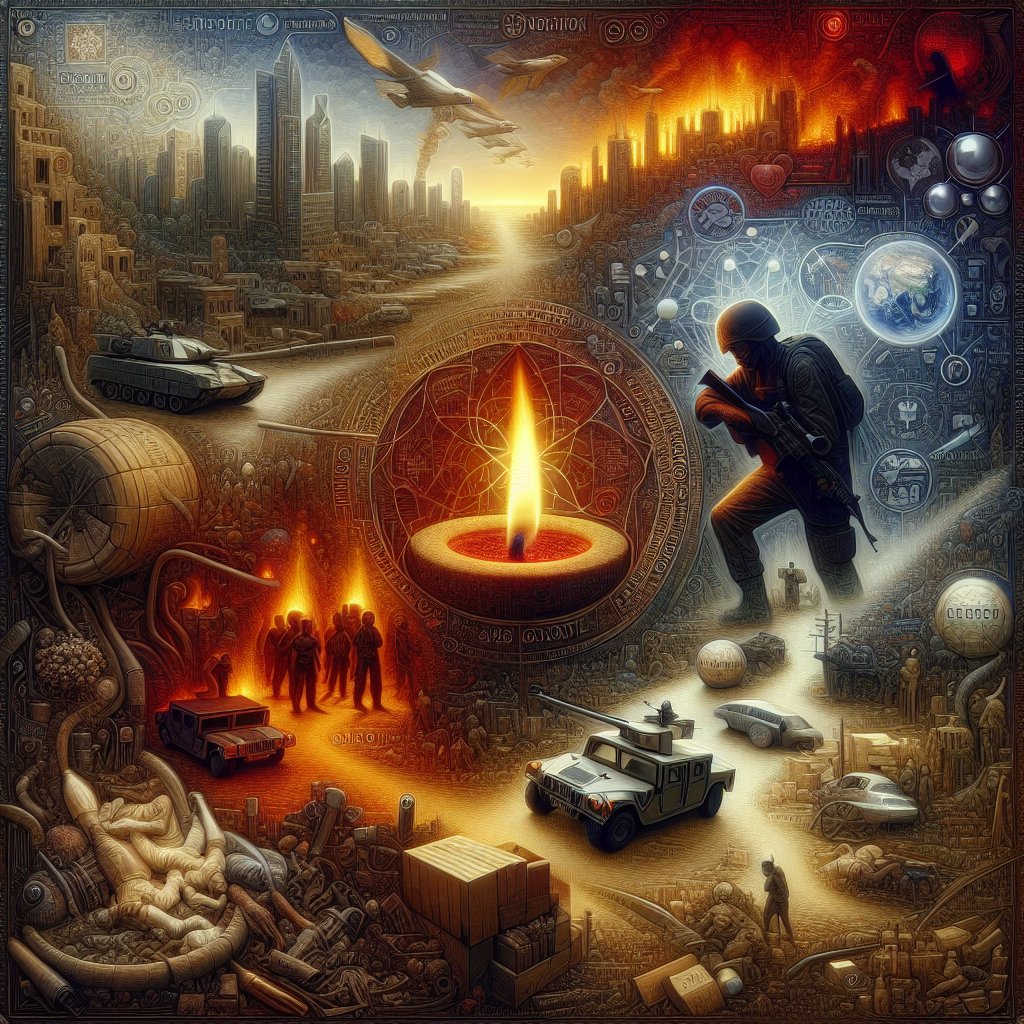Image created by AI
Ukraine's Struggle in a Stalemate: The West's Role and the Quest for Victory
Two years have passed since Russia's aggressive invasion of Ukraine, an event that forever changed the geopolitical landscape of Eastern Europe. This conflict, which has claimed thousands of lives and displaced millions, finds itself at a critical juncture. Ukraine's once-bright ember of resistance seems to be smoldering under the heavy shadow of international politics, particularly that of the United States and Europe.
At the heart of Ukraine's current predicament is a complex interplay of political maneuvers, military might, and diplomatic deadlock. Recently, the eastern city of Avdiivka fell to Russian forces after a prolonged and devastating battle. The city's loss, though pyrrhic for Russia considering the high casualty toll, has dire strategic implications for Ukraine, risking the possibility of more territorial encroachments by Moscow.
This development can be partially attributed to the convolution of US domestic politics, notably the position taken by former President Donald Trump and certain Republican Congressional members. Their stance against a bipartisan agreement for a substantial aid package undermined Ukraine's military capacity significantly, leaving them underarmed against the overwhelming Russian firepower.
Aid packages, military alliances, and production capacities lie at the heart of the geopolitical conundrum. The European Union stepped up with support, but officials openly admit that without US collaboration, the efforts fall short of making a decisive impact. In a startling contrast, NATO, with its mammoth economic prowess, appears unable to overshadow Russia's military onslaught.
Within this complex conflict lie the production struggles of NATO countries, contrasted with the less savory support Russia receives from Iran and North Korea. There are calls, notably from Estonian defense calculations, for the NATO member states to invest a fraction of their GDPs to arm Ukraine sufficiently; yet it seems that the Western arsenal is not ready or willing to enter a footing that resembles wartime urgency.
The story of Ukraine's resilience is as inspiring as it is heart-wrenching. Since the invasion's outset, Ukrainians held off advances with limited resources, buoyed by Western-provided handheld Javelin missiles and the leadership of President Volodymyr Zelensky. The slight respite came in 2022 with a counteroffensive regaining territory, but the triumph was short-lived, with the subsequent offensive in 2023 stalling.
Efforts to broker a peaceful resolution have been fraught with complexity, not least because of the firm stance that Ukraine and its allies have on Russian withdrawal. South Africa's own President, Cyril Ramaphosa, attempted to mediate, but the peace plan was met with equivocation from the Russian side, while Zelensky remains steadfast in his refusal to concede any Ukrainian territory.
The underlying truth remains that a West united in its political will is the key to Ukraine's future. Western leaders are being called upon to muster the courage and resolution necessary to provide Ukraine with the support needed, anything less risks handing victory to Russia. It is the narrative of a stalemate and a proposed narrative of capitulation - that Ukraine might have to concede territories - that Anders Fogh Rasmussen, a former Nato secretary-general, fervently opposes.
Indeed, the ongoing war in Ukraine is not just a regional crisis; it is a battleground for the principles of democracy and the value of a rules-based international order. The next months will be decisive. And the outcome will reverberate not only through the war-torn plains of Eastern Europe but through the annals of history, potentially reshaping the global order for generations to come.










